SELF-REPRESENTED LITIGANTS (SRL) AWARENESS DAY: (October 4th 2017) at Windsor Law, Osgoode Hall Law School, the University of Ottawa Law School, Queens Law School, and Western Law
- SRL Awareness Day aims to increase awareness among law students of the self-represented litigant experience. Windsor Law, Osgoode Hall Law School, the University of Ottawa Law School, Queens Law School, and Western Law will host invited SRL guests in classes and during a midday panel.
For more information about SRL Awareness Day, visit the National Self-Represented Litigants Project (NSRLP) website here. Join the conversation taking place on social media for Self-Represented Litigants Awareness Day with #SRLawareness and #SRLawarenessday.
LEGAL INNOVATION ZONE: YOUTH ACCESS TO JUSTICE INITIATIVE at Ryerson University
- Session 2A (youth only): October 4 at Ryerson University
This event will focus on access to justice within the community and how to address access to justice issues.
- Session 2B: October 25 at Ryerson University
This event is open to all ages. Discussions will center on community access to justice issues and how those in the community can get help for their issues.
- Session 3: October 30 at Ryerson University
This session will explore where justice system users go for legal help and how existing resources can be made to work better.
- Session 4 (Design Thinking): November 4 at Ryerson University
Using themes explored in earlier sessions, this session will lead participants through the Design Thinking process to create prototypes for youth justice initiatives.
For more information on the Legal Innovation Zone Youth Access to Justice Initiative, visit their website here.
SASKATCHEWAN ACCESS TO JUSTICE WEEK (October 16 to 21) at the University of Saskatchewan, College of Law
- This is the 2nd annual Saskatchewan Access to Justice week. This event seeks to engage individuals and stakeholders in access to justice discussions and to bring to the forefront various initiatives that are contributing to improvements in A2J for Saskatchewan residents.
For more information on Saskatchewan Access to Justice Week, visit their website here. Follow the week’s events and conversations on social media using #SKA2J.
ONTARIO ACCESS TO JUSTICE WEEK (October 23 to 27)
This is Ontario’s second annual Access to Justice Week. This year’s Access to Justice Week will include the following events:
- Access to Justice Innovation (October 23) at the Law Society of Upper Canada
This event will highlight innovative, community driven work taking place in the justice sector. The keynote presentation will be delivered by Justice Thomas A. Cromwell.
- Improving Health, Improving Service (October 23) at the Law Society of Upper Canada
This event will focus on mental health and other health risks that lawyers face.
- The Millennial Influence (October 24) at the University of Ottawa
This event will include discussions on the ways that millenials are influencing thinking on A2J and legal technology.
- Paralegals and Access to Justice (October 25) at the Law Society of Upper Canada
This session will centre on the contributions that paralegals are making to improving A2J.
- Include. Inform. Inspire. (October 26) at the Law Society of Upper Canada
This will be a public legal education and information forum.
For more information on Ontario’s Access to Justice Week, visit The Action Group on Access to Justice website here. Follow the week’s events and conversations on social media using #A2J2017.
2017 IT.CAN 21st ANNUAL CONFERENCE (October 23 to 24) at 150 King Street West, Toronto
- This 2-day conference will offer legal professionals and others an opportunity to network and learn about developments in technology law in Canada and abroad.
For more information about the IT.CAN Conference, visit the program page here.
ABA 2017 NATIONAL AGING AND LAW CONFERENCE (October 26 to 27) Silver Spring, Maryland
- This 2-day conference will include an array of workshops on legal and policy issues, legal service delivery and recent developments related to elder rights, aging and law.
For additional information on the American Bar Association’s (ABA) 2017 National Aging and Law conference visit their website here.
2017 FAMILY DISPUTE RESOLUTION INSTITUTE OF ONTARIO (FDRIO) AND FAMILY MEDIATION CANADA (FMC) CONFERENCE (November 20 to 21) in Toronto, Ontario
The 2-day 2017 FDRIO-FMC Conference will include panels and workshops on a range of topics including:
- How to Fix the Family Court Crisis
- Getting Past Impasse
- Distance Mediation and Technology
- Effective Advocacy in Mediation
- Elder Mediation
- Parenting Coordination Challenges
- Grandparent Access Mediation
- Domestic Violence and Power Imbalance
- Income Determination for Support Purposes
- Ethical Issues in Mediation/Arbitration
For more information or to register for the FDRIO-FMC conference, visit the Family Dispute Resolution Institute of Ontario website here. Follow the conversation on social media with #FDRevolution.
SELF-REPRESENTED LITIGATION NETWORK (SRLN) 2018 CONFERENCE (February 22 to 23, 2018), San Francisco, California
- The 2nd annual Self-Represented Litigation Network Conference will bring together a diverse group of players and users in the justice system to explore and create new tools for providing access to justice. Proposals for this conference will be accepted up to September 29.
For more information about Designing & Engaging the 100% Access to Civil Justice Ecosystem, the 2-day SRLN conference, visit their website here.






